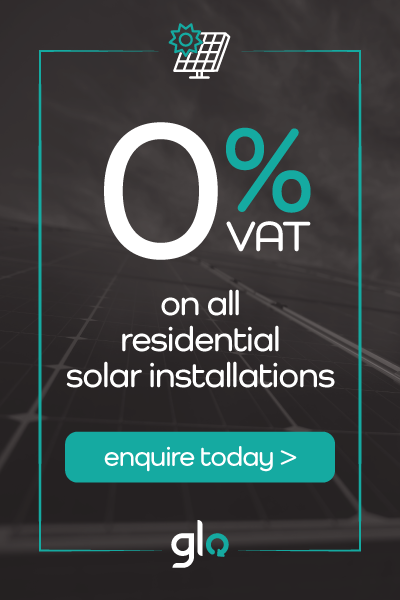Introduction
Solar panels have become increasingly popular in recent years as a clean and renewable energy source in the UK. They harness the power of the sun to generate electricity, making them an eco-friendly alternative to traditional fossil fuel-based power generation methods. In this article, we will delve into the theory and construction of solar panels, understanding how they work and the materials used in their production.
Understanding Solar Energy
Solar energy is the radiant energy emitted by the sun. When harnessed, this energy can be converted into electricity to power homes, businesses, and even entire cities in the UK. The process of capturing solar energy involves the use of solar panels, which are designed to convert sunlight into usable electricity.
The Photovoltaic Effect
At the heart of solar panel technology lies the photovoltaic effect. This phenomenon occurs when certain materials, known as semiconductors, are exposed to sunlight. The photons from the sunlight knock electrons loose in the material, generating a flow of electricity.
Solar Cell Types
There are several types of solar cells commonly used in solar panels. Monocrystalline solar cells are made from a single crystal structure and are known for their high efficiency. Polycrystalline solar cells, on the other hand, are made from multiple crystal structures and are a more cost-effective option. Thin-film solar cells are flexible and lightweight, suitable for various applications.
Composition of Solar Panels
Solar panels are composed of multiple layers of materials. The main component is the solar cells, which are responsible for converting sunlight into electricity. These cells are sandwiched between an encapsulation material, a back sheet for protection, and a sturdy frame with a junction box for electrical connections.
The Manufacturing Process
The production of solar panels involves several stages. It starts with the production of silicon wafers, which are used to make solar cells. The solar cells are then assembled into panels, and additional components are added to make the panel weather-resistant and durable.
Efficiency and Performance
The efficiency of solar panels is a crucial factor in determining their effectiveness. Various factors, such as temperature, shading, and orientation, can affect a panel’s efficiency. It is essential to understand how to measure and interpret a solar panel’s performance to maximize its output.
Environmental Impact
Solar panels offer numerous environmental benefits in the UK, including reduced greenhouse gas emissions and decreased reliance on non-renewable resources. Additionally, recycling initiatives and sustainable manufacturing processes contribute to their eco-friendly reputation.
Advancements in Solar Panel Technology
Researchers are continually working on improving solar panel technology. Bifacial solar panels can generate electricity from both sides, increasing their overall efficiency. Tandem solar cells combine different materials to capture a broader spectrum of sunlight, further enhancing their performance.
Solar Panel Installation
Proper installation is critical for optimizing solar panel efficiency in the UK. Factors such as sun exposure, shading, and roof angle must be considered during installation. Additionally, there are different types of solar panel systems, including grid-tied and off-grid setups, each with its advantages and disadvantages.
Maintenance and Care
To ensure consistent performance, solar panels require regular maintenance. Keeping the panels clean and monitoring their output helps identify any issues that may affect their efficiency. Timely maintenance can prolong the life of the solar panel system.
Solar Panel Economics
Investing in solar panels can yield significant long-term savings in the UK. Understanding the return on investment (ROI) is essential for homeowners and businesses looking to go solar. Additionally, there are various incentives and tax credits available to promote the adoption of solar energy.
Solar Panels for a Sustainable Future
Solar energy is a critical component of sustainable development in the UK. Integrating solar panels into urban areas can lead to cleaner and more resilient cities. Moreover, solar-powered transportation offers an environmentally friendly alternative to traditional vehicles.
Conclusion
In conclusion, solar panels are a marvel of engineering, converting the sun’s energy into electricity through the photovoltaic effect. Their construction involves intricate layers of materials, and advancements in technology continue to improve their efficiency and performance. Embracing solar energy not only reduces environmental impact but also offers economic benefits and contributes to a more sustainable future in the UK.
FAQs
- Are solar panels suitable for all climates? Solar panels are effective in various climates, although their efficiency may vary depending on sunlight exposure and temperature.
- What is the typical lifespan of solar panels? Most solar panels have a lifespan of 25 to 30 years, but they can continue to produce electricity even beyond that timeframe.
- Can I install solar panels on a flat roof? Yes, solar panels can be installed on flat roofs using special mounting systems designed for such installations.
- Do solar panels work during a power outage? Standard grid-tied systems are designed to shut down during a power outage for safety reasons. However, there are off-grid systems with battery storage that can provide backup power.
- How much can I save by switching to solar energy? The savings from solar energy depend on various factors, including the size of the solar panel system, local electricity rates, and available incentives.
Find out more Now: https://bit.ly/J_Umma






